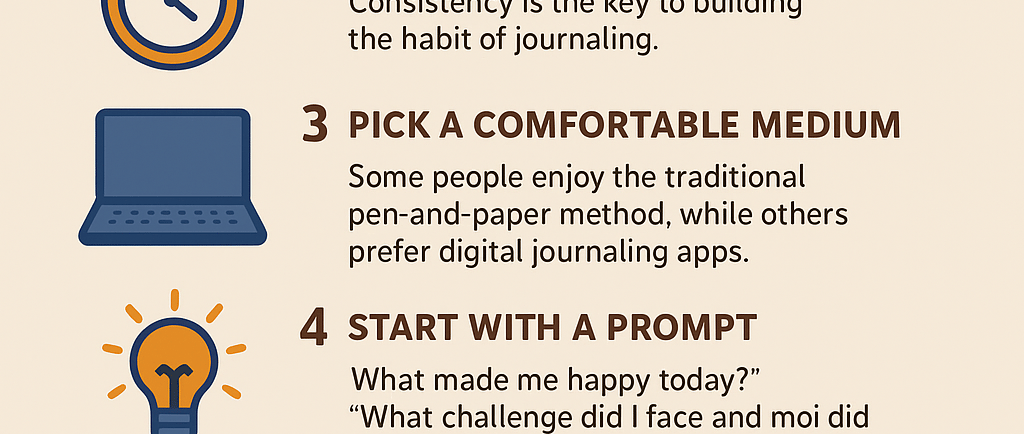How to Write a Journal: A Complete Guide
.


Journaling is one of the most effective ways to reflect, organize thoughts, and track personal growth. Whether you are a student, a professional, or someone simply looking to express emotions, writing a journal can help bring clarity and creativity into your life. Many successful people use journaling as a tool for self-improvement and mental well-being. If you are wondering how to begin, here is a step-by-step guide on how to write a journal effectively.
1. Choose Your Journal Style
The first step is to decide the type of journal you want to keep. There are many kinds: a personal diary, a study journal, a gratitude journal, a travel log, or even a professional work journal. Choosing the purpose will guide the way you write.
2. Set Aside a Regular Time
Consistency is the key to building the habit of journaling. Decide whether you want to write in the morning to set intentions for the day or at night to reflect on what happened. Even spending just ten minutes daily can help build a strong routine. The timing doesn’t matter as much as regularity.
3. Pick a Comfortable Medium
Some people enjoy the traditional pen-and-paper method, while others prefer digital journaling apps or simple word documents. Both methods are effective; what matters is choosing the one that feels natural to you. Writing by hand often feels more personal, while typing may be faster and more convenient.
4. Start with a Prompt
If you are unsure what to write, prompts can help. For example:
What made me happy today?
What challenge did I face and how did I handle it?
What am I grateful for right now?
Prompts allow you to focus your thoughts and avoid staring at a blank page.
5. Be Honest and Personal
A journal is a private space, so there is no need to worry about grammar, spelling, or style. Write as if you are speaking to yourself. Be truthful about your feelings, thoughts, and experiences. Honesty makes journaling more meaningful and therapeutic.
6. Keep It Simple
You do not need to write lengthy essays every day. Sometimes a few sentences or bullet points are enough to capture your thoughts. On busy days, even noting down one highlight or one lesson learned is valuable.
7. Reflect and Review
Occasionally, revisit old entries to see how far you have come. This practice can reveal patterns, personal growth, or areas that still need attention. Reflection helps you learn from the past and plan better for the future.
Conclusion
Writing a journal is not about perfection but about expression. It is a safe space to release emotions, plan goals, and track growth. By choosing the right style, staying consistent, and writing honestly, you can turn journaling into a powerful habit that nurtures both your mind and spirit. Start small, stay committed, and let your journal become your trusted companion on the journey of self-discovery.
